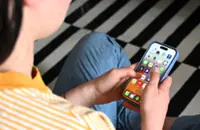The shift away from using coins in many countries appears to be fuelling a drop in children needing surgery to remove objects they have swallowed or stuck up their noses, research suggests.
Analysis published in The Annals of the Royal College of Surgeons of England journal last year (2024) found far fewer children are now needing hospital procedures to remove objects from throats, noses and airways.





